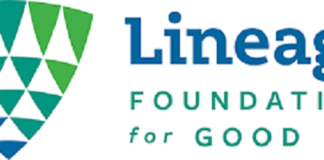
Article sponsored by ECI Software Solutions
By Kyle McTavish, Demand Generation Manager at ECI Software Solutions
Efficiency, quality and compliance with ERP solutions
In food and beverage manufacturing, managing raw materials takes center stage. Regardless of the specific product, the core of quality and safety relies on effectively managing raw materials.
The raw material expiry challenge
Raw material expiry stands as a complex challenge for food and beverage manufacturers. This multi-faceted issue arises from a combination of factors:
- Inventory management: Handling an extensive array of raw materials can be daunting. Without streamlined inventory control, materials may be forgotten, misplaced, or improperly stored, leading to spoilage and waste.
- Supplier dynamics: Timely delivery of raw materials by suppliers is crucial. Delivery delays can curtail the available shelf life of these materials, causing undue pressure on manufacturers.
- Production scheduling: Unforeseen disruptions in production can result in unused raw materials, compelling companies to discard expired inventory and incur significant losses.
- Regulatory compliance: The food and beverage industry is highly regulated, with strict guidelines concerning using expired raw materials. Non-compliance can result in fines, product recalls, and reputational damage.
The ERP solution: Extending raw material shelf life
Enterprise Resource Planning (ERP) systems are a powerful ally in addressing the challenges of raw material expiry. Here’s how ERP software comes to the rescue:
- Real-time inventory management: ERP systems provide real-time visibility into inventory levels, their precise locations, and expiration dates. This empowers manufacturers to plan production effectively, ensuring materials are used before they expire.
- Demand forecasting: ERP software incorporates demand forecasting, enabling manufacturers to align production schedules with anticipated market demands. This reduces the risk of overstocking materials that may ultimately go unused.
- Supplier collaboration: ERP systems facilitate seamless communication with suppliers, enabling proactive management of material orders and deliveries. This proactive approach prevents delays that could shorten the shelf life of incoming materials.
- Quality control: ERP solutions feature quality management modules, allowing rigorous inspection and testing of incoming materials. This ensures that only materials meeting stringent quality standards are accepted, reducing the risk of using subpar or expired materials.
- Lot traceability and tracking: ERP systems enable batch and process manufacturers to meticulously trace the use of specific materials in each product batch. In the event of a recall or quality issue, this traceability ensures the swift identification and removal of affected products, minimizing risks and costs.
- Regulatory compliance: ERP software often includes compliance features that automatically flag or restrict the use of expired materials, helping manufacturers adhere to industry regulations and avoid compliance-related pitfalls.
Real-world application: Food and beverage manufacturing
The food and beverage industry exemplifies how ERP systems can address raw material expiry challenges effectively. In this sector, the quality and safety of raw materials play a pivotal role in ensuring that the final products meet the highest standards.
An ERP system tailored for food and beverage manufacturing brings the following benefits in managing raw material expiry:
- Real-time visibility: It offers a clear view of raw material inventory, including expiration dates.
- Demand forecasting: Automates the process, optimizing production schedules based on market demands.
- Supplier collaboration: Facilitates seamless communication with suppliers to ensure timely deliveries.
- Quality control: Enforces rigorous quality control measures during material acceptance.
- Batch traceability: Provides the capability to swiftly identify and remove products using expired materials in case of recalls or quality issues.
- Compliance support: Assists in adhering to stringent food safety regulations and industry standards.
Raw material expiry challenges are constantly concerning for batch and process manufacturers, especially in the food and beverage industry. Fortunately, ERP software has emerged as a potent solution to address these challenges. By offering real-time inventory management, demand forecasting, supplier collaboration, quality control, traceability, and compliance support, ERP systems enable manufacturers to extend the shelf life of their raw materials.
This reduces waste, minimizes the risk of using expired materials, enhances product quality, and safeguards profitability and reputation. In today’s fiercely competitive market, where efficiency and compliance are non-negotiable, food and beverage manufacturers can’t afford to ignore the advantages of ERP software in managing raw material expiry effectively.
Explore Deacom ERP for your manufacturing needs
If you’re looking for a manufacturing solution to elevate your food and beverage business, it’s high time you explore Deacom ERP. Specifically designed for batch and process manufacturers, Deacom ERP eliminates the need for disjointed systems and add-ons, consolidating everything into one comprehensive ERP platform.
Visit Deacom ERP to learn how it can revolutionize your manufacturing operations.







